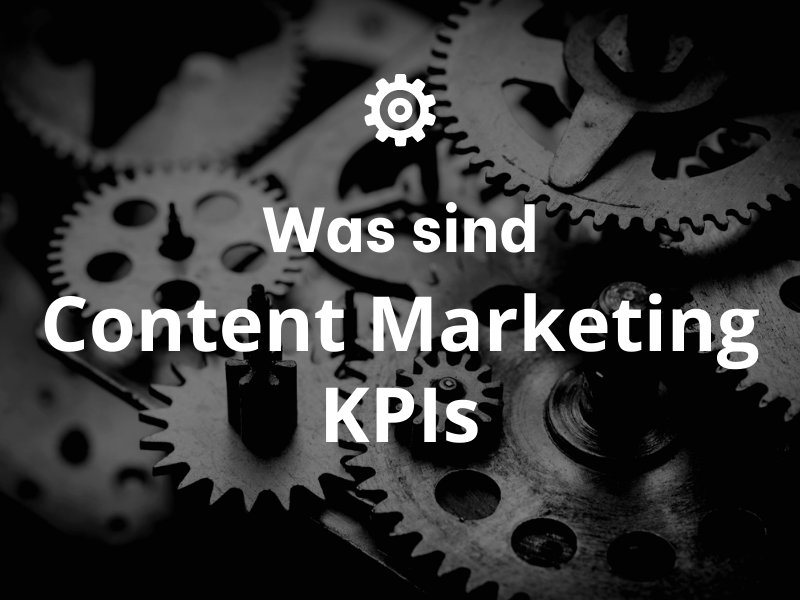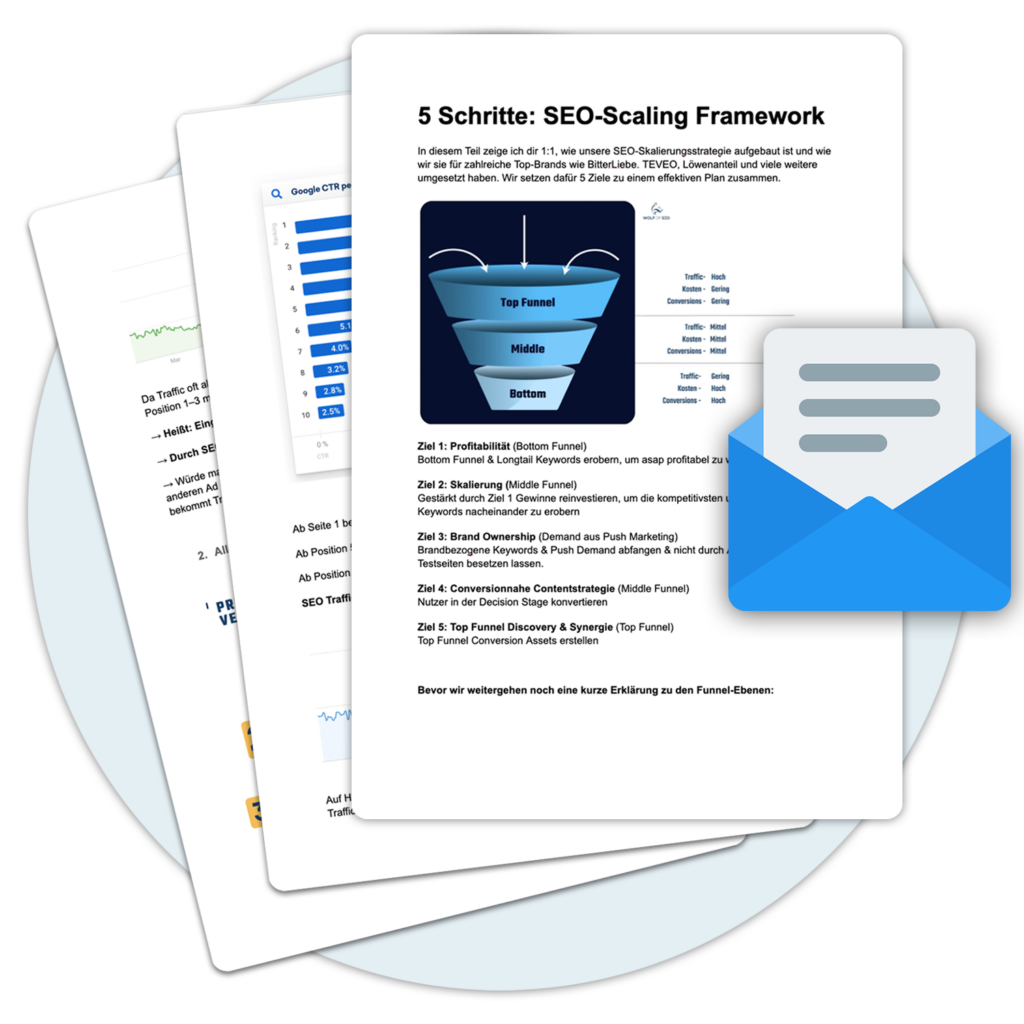1. definition of content marketing KPIs
Content Marketing KPIs (Key Performance Indicators) are measurable key figures that are used to measure the success of Content Marketing-campaigns. They can be used by companies to determine how effective their Content Marketing-strategies and whether they are achieving the desired results by implementing new strategies. These can be various metrics, such as the number of visitors who visit the website, the number of clicks on a particular link, the number of page views, the number of subscribers or the number of likes on social media posts.
2. advantages of using content marketing KPIs
Content marketing KPIs offer companies a number of advantages. First, they can be used to measure the effectiveness of content marketing and determine whether or not certain strategies are working for the company. This gives companies valuable insight into how their strategies are performing and they can adjust accordingly. Second, they can be used to evaluate business growth opportunities. With the help of Content marketing KPIs companies can see if they are on track to meet their growth targets and make the necessary adjustments to achieve those targets.
3. disadvantages of using content marketing KPIs
Content marketing KPIs also have some disadvantages. First of all, they can be difficult to interpret, as they often work with complex algorithms and statistics that are not always easy to understand. In addition, the use of Content marketing KPIs a lot of time and effort, as they need to be updated regularly to ensure that they measure correctly. Finally, they can lead companies to focus too much on numbers and metrics and too little on quality and creativity.
4. use cases for content marketing KPIs
Content marketing KPIs can be useful in many different use cases. Companies can use them to see how effective certain Content marketing-strategies, and can use them to understand how they can improve their Content marketing-strategies to achieve better results. Companies can also use them to determine how effective their Online Marketing-campaigns and to track the growth of their customer base.
5. detailed examples of content marketing KPIs
Some detailed examples of Content marketing KPIs are the number of visitors visiting the website, the number of clicks on a specific link, the number of page views, the number of subscribers or the number of likes on social media posts. Other examples include the number of lead generations, the number of purchases, or the number of newsletter signups.
10 Content Marketing KPIs you can use:
Website traffic:
This KPI measures the number of visitors coming to your website. A high number of visitors means that your content is successful and that your target audience finds and consumes your content. You can increase your Traffic by using tools like Google Analytics use.
Pretty obvious, right? You want to know how often your content is being seen. For example, if you publish a blog post and the page views go up, you're doing something right. However, if they're dropping, it might be time for an overhaul.
Bounce Rate:
This KPI measures the number of visitors who leave your website after visiting a single page. A high Bounce rate indicates that your content is not relevant or interesting enough to hold visitors' attention. In order to Bounce rate you should make sure that your content is more relevant and attractive and that the navigation is easy to use.
Dwell time:
This KPI measures the average time visitors spend on your website. A long dwell time indicates that your content is informative and interesting, and that visitors will engage with it for longer. To increase dwell time, you should make sure that your content is aligned with the interests and needs of your target audience and that your navigation is user-friendly.
Not only do you want people to click on your content, you want them to stay. A longer stay shows that your content is interesting and valuable. If people only stay for a short time, they may miss the real value of your content.
Conversion Rate:
This KPI measures how many visitors convert on your website by taking an action such as making a purchase or signing up. A high Conversion Rate indicates that your content is successful in turning visitors into customers. In order to Conversion Rate you should make sure that your content contains clear calls-to-action.
That's the big one. You don't just want people to see your content, you want them to take an action, whether it's a purchase, a sign-up, or some other desired action. The content can be as good as it is; if it doesn't lead to conversions, something is missing.
Lead Generation:
This KPI measures the number of leads generated by your content. A high number of leads indicates that your content is successful in generating interest and collecting contact information from potential customers. To increase lead generation, you should ensure that you offer content that is relevant to your target audience and that makes them want to provide their contact information. You can use landing pages, forms and CTAs to encourage lead generation.
Many content marketing strategies are about collecting leads. That could mean someone offering their email subscription to your newsletter. The more leads you generate, the more successful your content is likely to be.
Social Media Engagement:
This KPI measures the interactions with your content on social media such as likes, shares, comments. A high interaction rate is an indicator that your content is considered relevant and interesting by your target audience. To increase engagement, make sure your content is optimized for the social platform and that you offer interactive content like polls, quizzes or sweepstakes.
Email Marketing Engagement:
This KPI measures interactions with your email marketing campaigns, such as open rates, click-through rates, and conversions. A high interaction rate is an indicator that your email subscribers see your content as relevant and interesting. To increase engagement, make sure your email campaigns are personalized, include a clear call-to-action, and are optimized for mobile viewing.
Branding:
This KPI measures the awareness and perception of your brand. High awareness and positive perception of your brand is an indicator that your content is successful in gaining the trust and loyalty of your target audience. To improve your branding KPI, make sure your content is consistent with your brand identity and positioning, and that you clearly define your target audience.
Return on Investment (ROI):
This KPI measures the effectiveness of your content marketing spend compared to the results achieved. A high ROI is an indicator that your content marketing strategy is successful and that you're using your budget effectively. To increase ROI, you should ensure that your content is aligned with your goals and that you are using the right metrics to measure the performance of your content. You should also regularly monitor the results of your content marketing efforts to make sure you're using your budget effectively and that you're making the necessary adjustments to increase your ROI.
Of course, these are just some of the KPIs you should keep an eye on. The key is this, clearly define your goals and then choose the KPIs that show you if you're meeting those goals. And always remember: numbers are great, but ultimately it's about creating real value for your audience. That will always lead to the best results in the long run!
Why is it important to determine the KPIs?
Content marketing KPIs give you something to measure yourself against. You can see how you are progressing over time. You can see what's going well and what needs improvement.
Collecting content marketing statistics alone is not enough. It's about using the information to take action.
It's much easier and provides more valuable data if you set the framework for your KPIs before you start a content marketing campaign. If you don't, your B2C or B2B content marketing report will try to determine success without knowing where you started, what happened, and how the end point differs from the beginning.
You can spice up the report with content marketing stats, but they'll be pretty meaningless in reality.
Hint: The better the content, the better the engagement rate! Sign up now for a free social media strategy session to get inspiration, tips and tool recommendations that will improve the Content marketing a piece of cake.
Conclusion
Content marketing is not a one-way street, but a continuous process of adaptation and optimization. That's why KPIs are essential to measure the success or failure of your strategies. They are your navigation tools on the journey to content excellence.
Think of an online store that runs a blog to promote its products. If the blog has many Page views has, but the Dwell time is low, it indicates that the visitors are curious, but the content does not keep them. In such a case, you need to make the content more interesting, perhaps with better headlines or more attractive images.
Or let's take a YouTube tutorial as another example. If the video has a high Interaction rate through comments and likes, but has a low Conversion rate, then perhaps the calls-to-action need to be revised. The video is interesting and useful, but it doesn't get viewers to take the next step, such as buying the advertised product.
Another important point is the organic Traffic. If you have to spend money on advertising all the time to get Traffic then this is a sign that your content is not strong enough organically. You should review and optimize your SEO strategy in such cases.
The Most important is not to look at the KPIs in isolation, but in the context of your overall marketing strategy and goals. After all, the content should not only be read, but also contribute to the achievement of your business goals.
In short, KPIs are more than just numbers; they are a representation of the effectiveness of your content. If you use them correctly, they can help you to optimize your Content strategy and ultimately carry out more successful marketing campaigns. Therefore: Keep your eyes on the KPIs and always stay on the ball!
« Back to Glossary Index






 By
By 